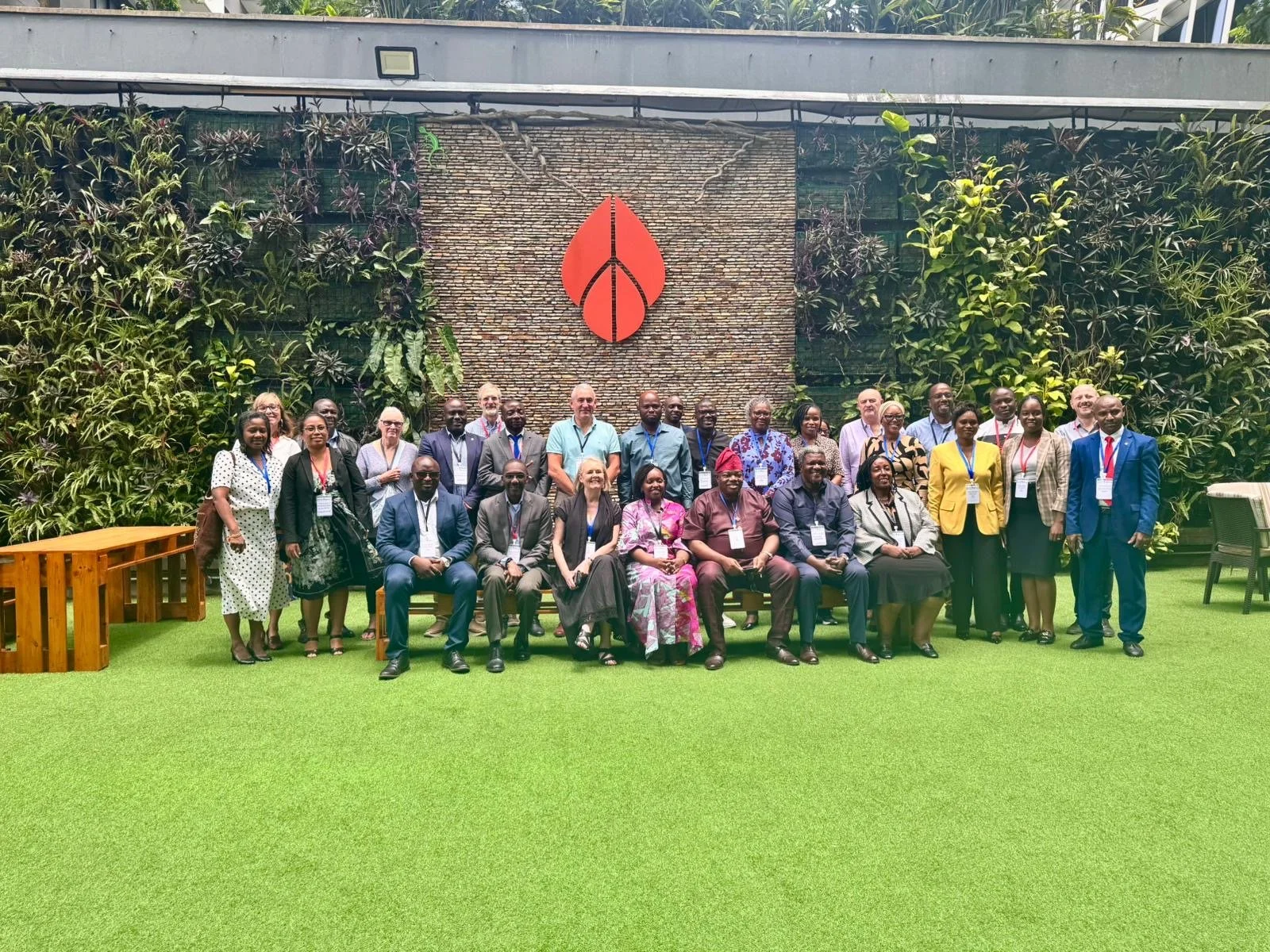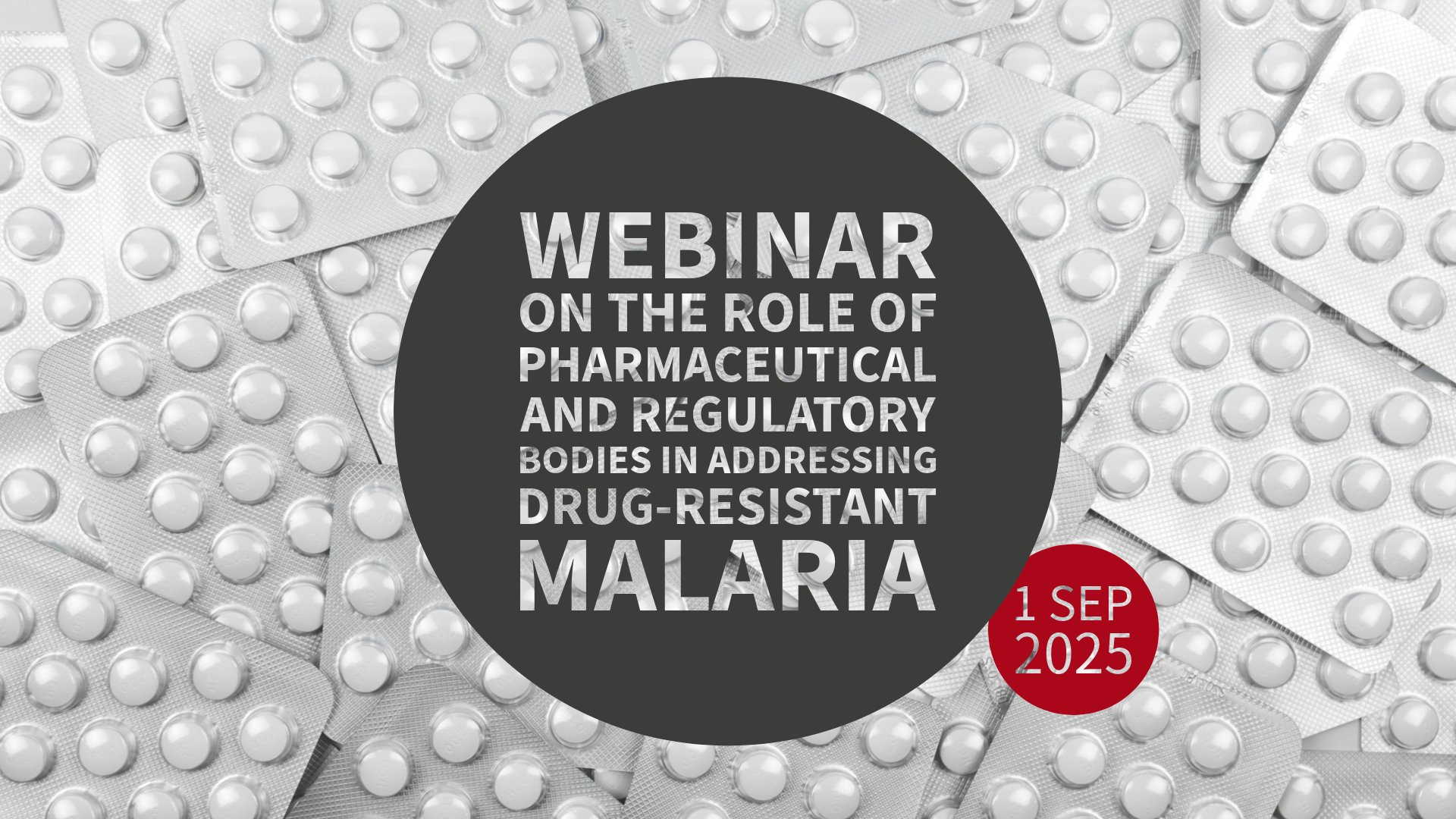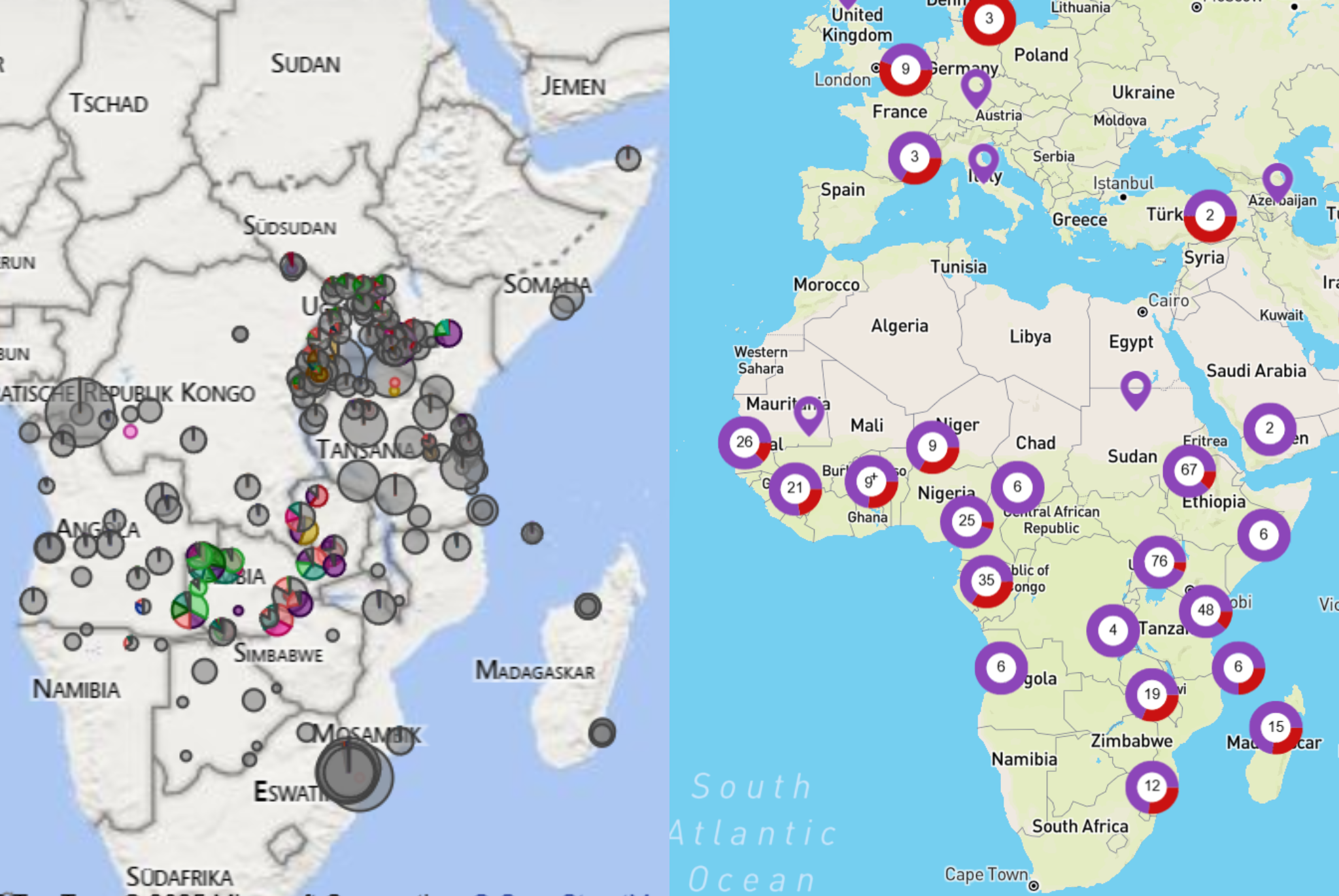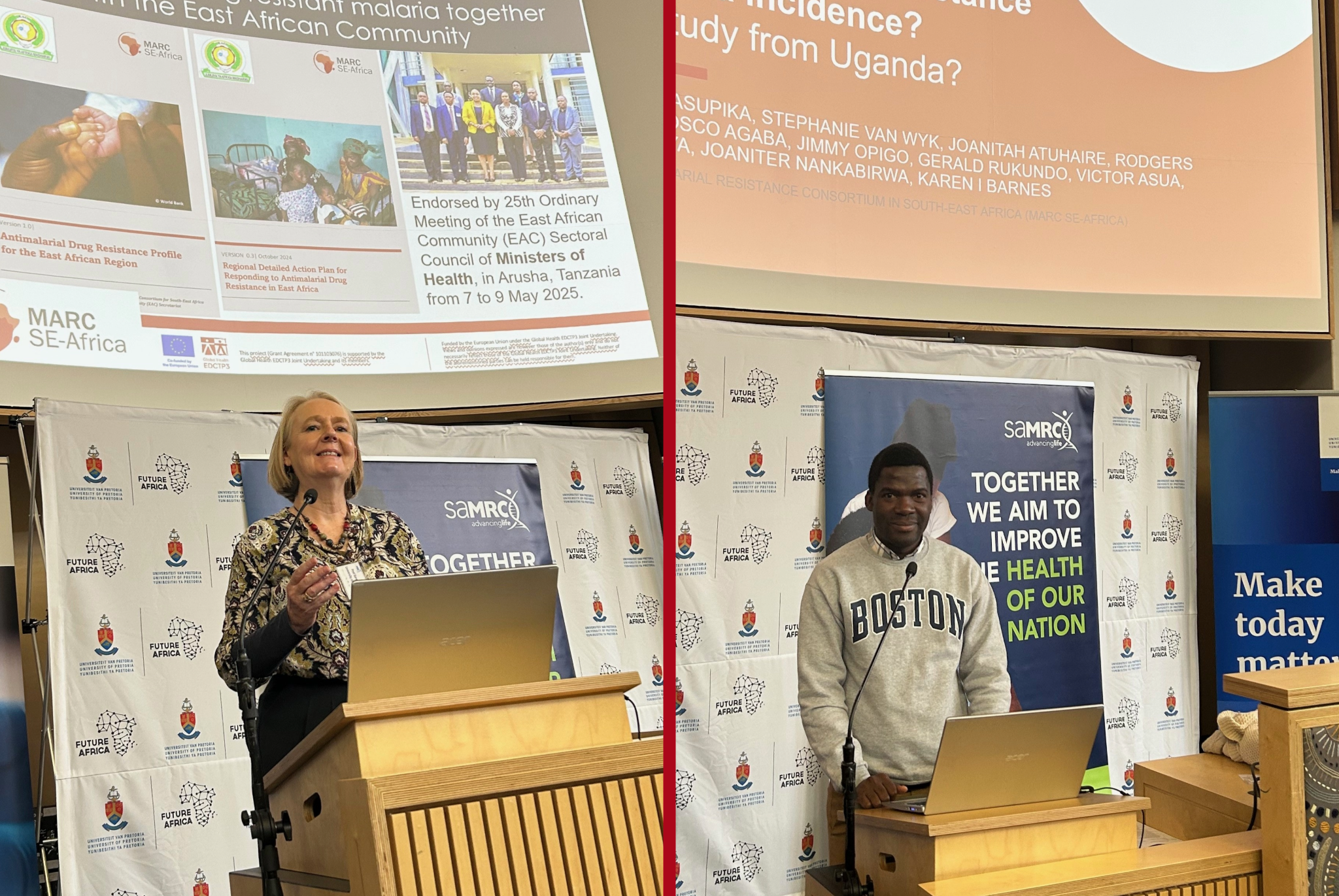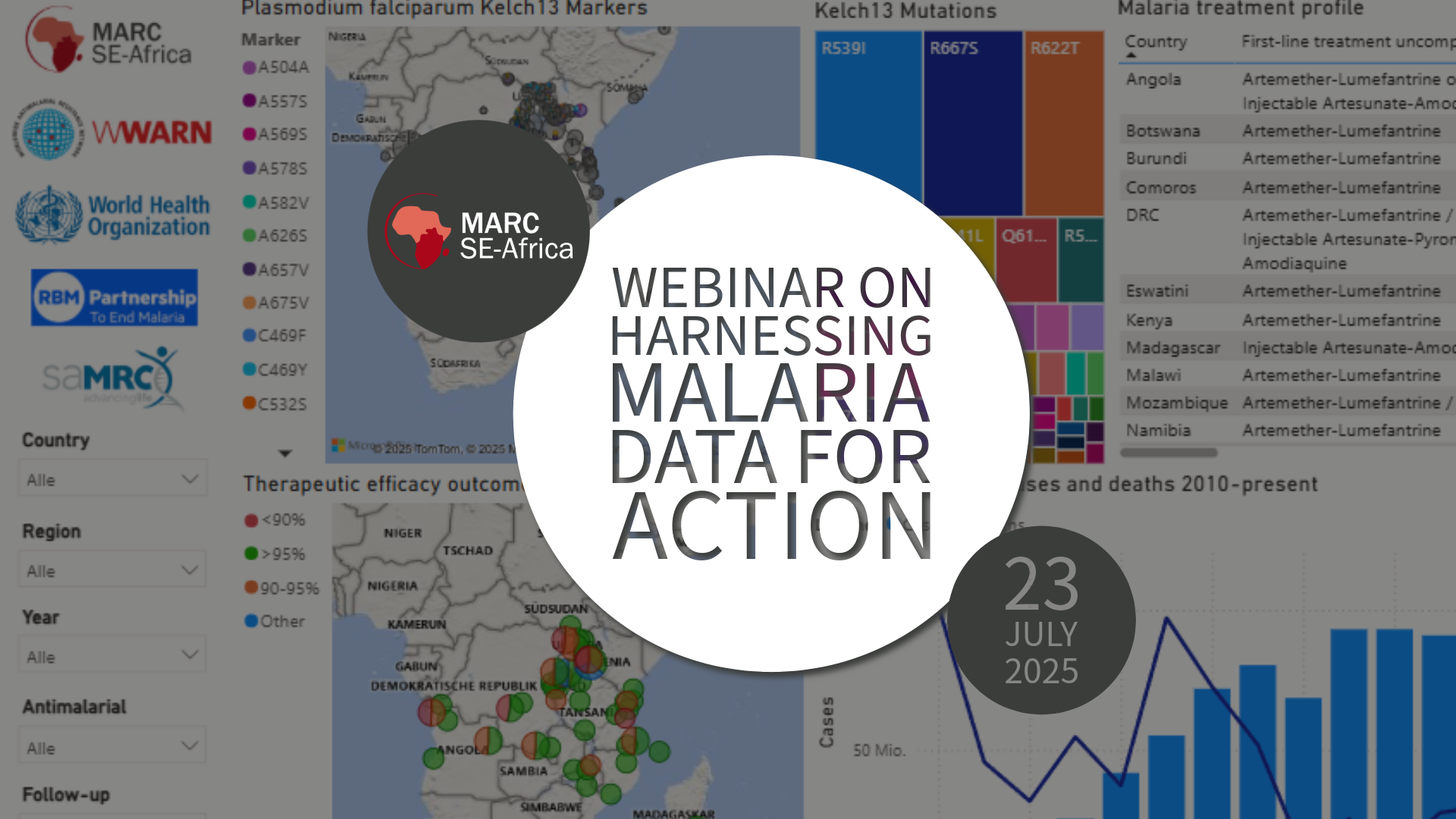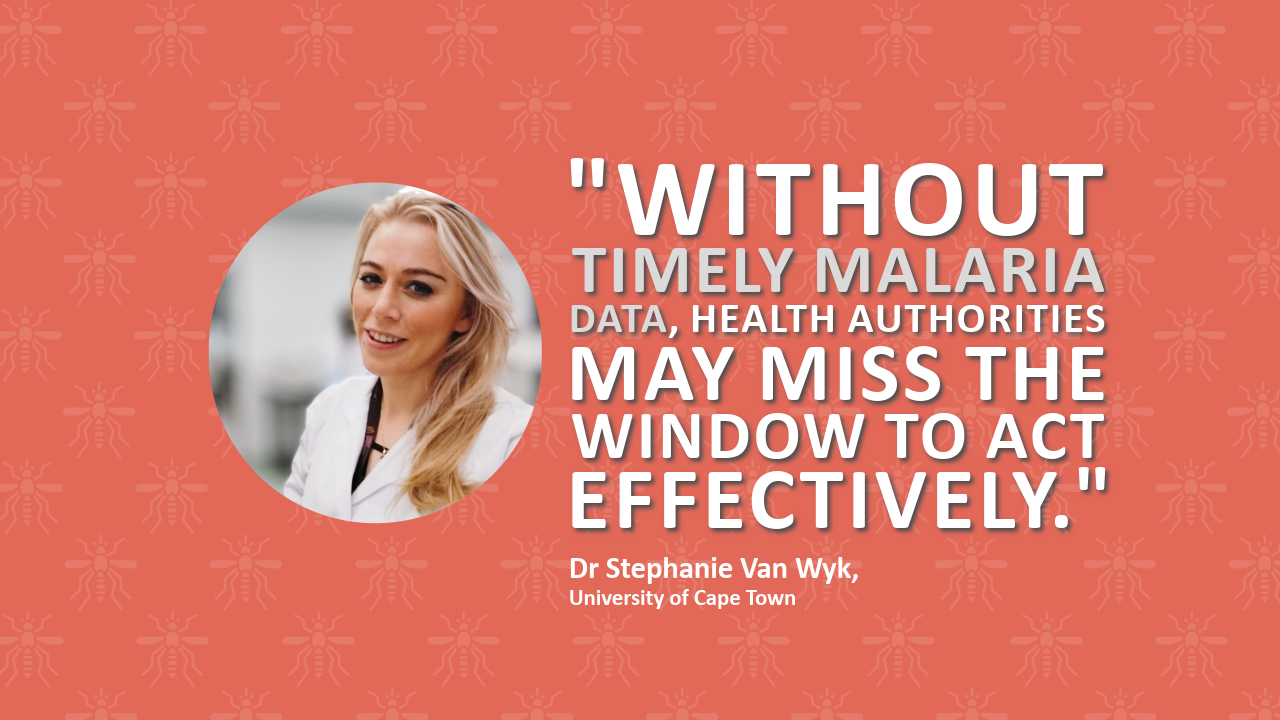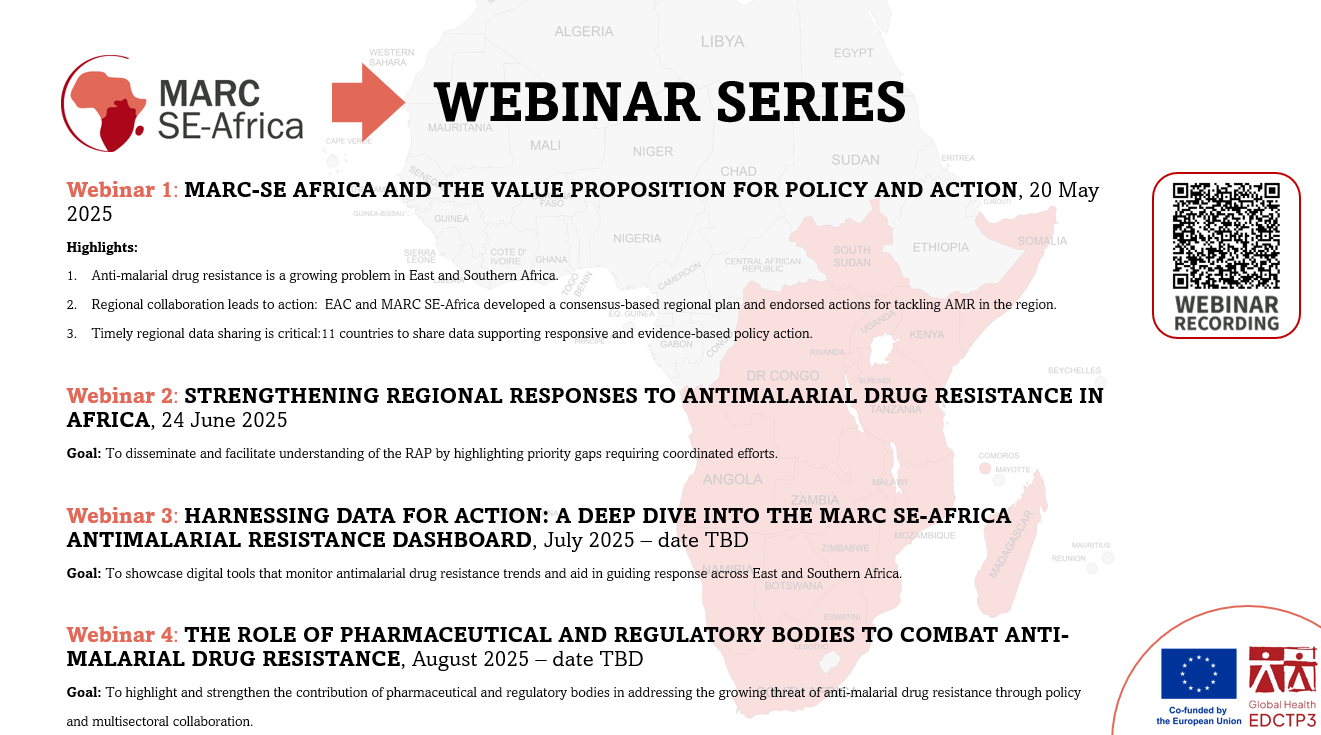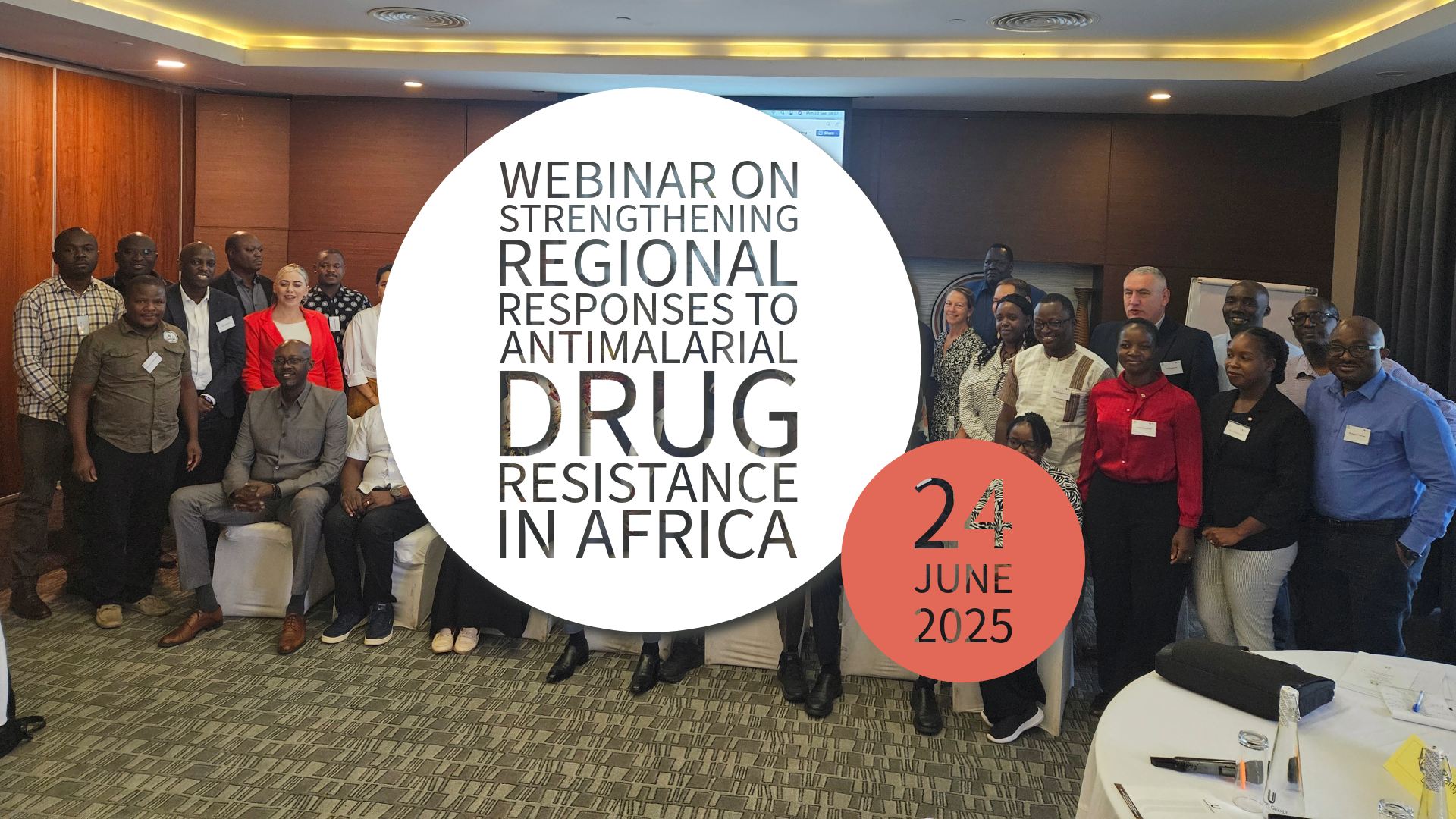News
On 11 November 2025, MARC SE-Africa and the Worldwide Antimalarial Resistance Network co-hosted a symposium at the American Society of Tropical Medicine and Hygiene’s annual meeting and presented some of the latest project milestones.
On 15 September, the RBM Partnership to End Malaria, MARC SE-Africa, and the Malawi Liverpool Wellcome Research Programme policy unit convened a policy dialogue on tackling antimalarial drug resistance in the lead-up to the 14th RBM Case Management Working Group meeting in Abidjan, Côte d’Ivoire.
On 1 September 2025, MARC SE-Africa hosted the final webinar in the antimalarial drug resistance series, this time exploring the role of pharmaceutical and regulatory bodies in addressing drug-resistant malaria.
Join the webinar where industry representatives will reflect on the role of pharmaceutical and regulatory bodies in addressing the growing threat of antimalarial drug resistance, explore the gaps and challenges to a coordinated response, and recommend actionable strategies to overcome them.
On 23 July 2025, malaria researchers and practitioners joined the MARC SE-Africa webinar to explore open-access tools developed by MARC SE-Africa and WWARN. These platforms aggregate malaria-related data and are freely available to support decision-making by national malaria control programme managers and other stakeholders.
Between 29 and 31 July, malaria researchers and malaria elimination program managers came together at the 10th Southern Africa Malaria Research Conference in Pretoria to shape the agenda for eliminating malaria. MARC SE-Africa was represented by Prof Karen Barnes and Dr Jonathan Gwasupika, who spoke about the consortium’s work in tackling antimalarial drug resistance.
Join the webinar to learn about the MARC SE-Africa antimalarial dashboard and how it aggregates and visualises real-time data on antimalarial resistance, treatment efficacy, and molecular markers.
Dr Stephanie Van Wyk explains why sharing malaria data matters, how researchers can help by sharing their findings without delay, and how digital tools are making this information more accessible to those who drive actionable change in the fight against malaria.
Key stakeholders addressing drug-resistant malaria in Africa participated in the MARC SE-Africa webinar on strengthening regional collaboration to tackle this urgent and growing issue. They learned how the Regional detailed action plan for responding to antimalarial drug resistance in East Africa was created and how this experience can inform similar work in Southern Africa.
Join the webinar to learn about the consensus-building process in East Africa that resulted in a regional action plan, and about how this example can be used for similar action elsewhere.
Malaria researchers, representatives of national malaria programmes, ministries of health and other malaria practitioners joined a MARC SE-Africa webinar, looking to learn more about the current state of antimalarial drug resistance in Southern and East Africa and ways to address it.
On 6 and 7 May 2025, MARC SE-Africa representatives joined the final in-person meeting for the Development of Triple Artemisinin-based Combination Therapies (DeTACT) project in Zanzibar, strengthening ties between research projects tackling drug-resistant malaria.
On 9 May 2025, during the 25th Ordinary Meeting of the East African Community (EAC) Sectoral Council of Ministers of Health, the region’s ministries of health officially endorsed the Regional Detailed Action Plan for Responding to Antimalarial Drug Resistance in East Africa.
Renowned experts on the topic of antimalarial resistance in Southern and Eastern Africa – Prof Karen Barnes (University of Cape Town) and Dr Aline Uwimana (University of Rwanda) – will present the current state of antimalarial resistance in the region and how the work of MARC SE-Africa has informed and supported antimalarial policy in Rwanda.
In celebration of World Malaria Day, MARC SE-Africa held an online writing workshop for malaria researchers on 23 April, offering participants dedicated writing time, topical workshops and a platform for collaboration.
In a cross-border meeting attended by national malaria programme representatives and heads of the Karamoja-Turkana and Busia-Busia border regions, Kenya and Uganda agreed to set up the Kenya-Uganda cross-border malaria elimination initiative (KUCMEI), aiming to eliminate malaria along the Kenya-Uganda border by 2030.
Digital innovations from the MARC SE-Africa, specifically the MARC SE-Africa Dashboard and MOXIE-BOT, have been featured in last week’s African research Editors’ Picks in Nature Africa. This recognition spotlights the tools' instrumental role in enhancing malaria surveillance and response across Southern and Eastern Africa, regions that together bear the highest global burden of malaria.
Join MARC SE-Africa’s virtual writing workshop, organised in celebration of World Malaria Day 2025! The Virtual Writing Workshop offers a structured, supportive space for researchers to advance their manuscripts on malaria and antimalarial drug resistance.
On 4 December 2024, the Southern African Development Community hosted a first-of-its-kind meeting on malaria molecular surveillance as part of the ongoing efforts under the Elimination 8 initiative. MARC SE-Africa experts such as Dr Eulambius Mlugu and Dr Jaishree Raman provided invaluable insights into the ongoing challenges posed by drug-resistant malaria and the importance of robust molecular surveillance systems.
On 19 November 2024, the MARC SE-Africa Consortium, in partnership with the International Society for Neglected Tropical Diseases (ISNTD), hosted a webinar to address the urgent need for collaborative efforts to tackle antimalarial drug resistance in Africa. This timely event was held in recognition of World Antimicrobial Resistance (AMR) Awareness Week.
On 20 November 2024, Prof Anders Björkman from the Karolinska Institutet co-organised an event at the Swedish House of Parliament, where he called on Sweden to contribute to malaria control and treatment in order to combat the growing antimalarial drug resistance.
The MARC SE-Africa consortium unveils the Antimalarial resistance dashboard - a new tool that brings data on antimalarial resistance in Southern and Eastern Africa to key stakeholders.
In the lead-up to Roll Back Malaria’s (RBM) Case Management Working Group annual meeting, MARC SE-Africa held a stakeholder event on 22-23 September 2024, aimed at coordinating regional action against antimalarial drug resistance.
MARC SE-Africa coordinator Prof Karen I Barnes and project partners Mehul Dhorda, Aline Uwimana, Jean-Louis Ndikumana Mangara, Leon Mutesa, and Arjen Dondorp have contributed to an article in the journal Science, calling for urgent action on artemisinin resistance in Africa.
Dr Stephanie van Wyk and Dr Jaishree Raman spoke at the 9th Southern Africa Research Conference, providing insight into the importance of malaria surveillance in driving informed malaria control strategies.
In July 2024, members of the Mitigating Antimalarial Resistance Consortium for South and East Africa (MARC SE-Africa) gathered in Kampala, Uganda, for a series of strategic meetings aimed at addressing the growing concerns about antimalarial drug resistance across the region.
On 22 April, MARC SE-Africa consortium held a symposium on regional strategies to combat antimalarial resistance in southern and eastern Africa as part of this year’s Pan-African Malaria Conference in Kigali, Rwanda.
At this year’s Multilateral Initiative on Malaria’s 8th Pan-African Malaria Conference, MARC-SE Africa launched Moxie-bot. This innovative chatbot helps practitioners access up-to-date resources on antimalarial drug resistance.
On 21 April 2024, MARC SE-Africa convened for a brainstorming and External Technical Advisory Committee (ETAC) meeting at the Multilateral Initiative on Malaria (MIM) Conference held in Kigali, Rwanda.
The WorldWide Antimalarial Resistance Network (WWARN) has launched an interactive map that helps malaria researchers find clinical trial publications in specific regions. This new feature is an update to their open-access library, which offers access to clinical efficacy trials of human-infecting plasmodium dating back to 1946.


